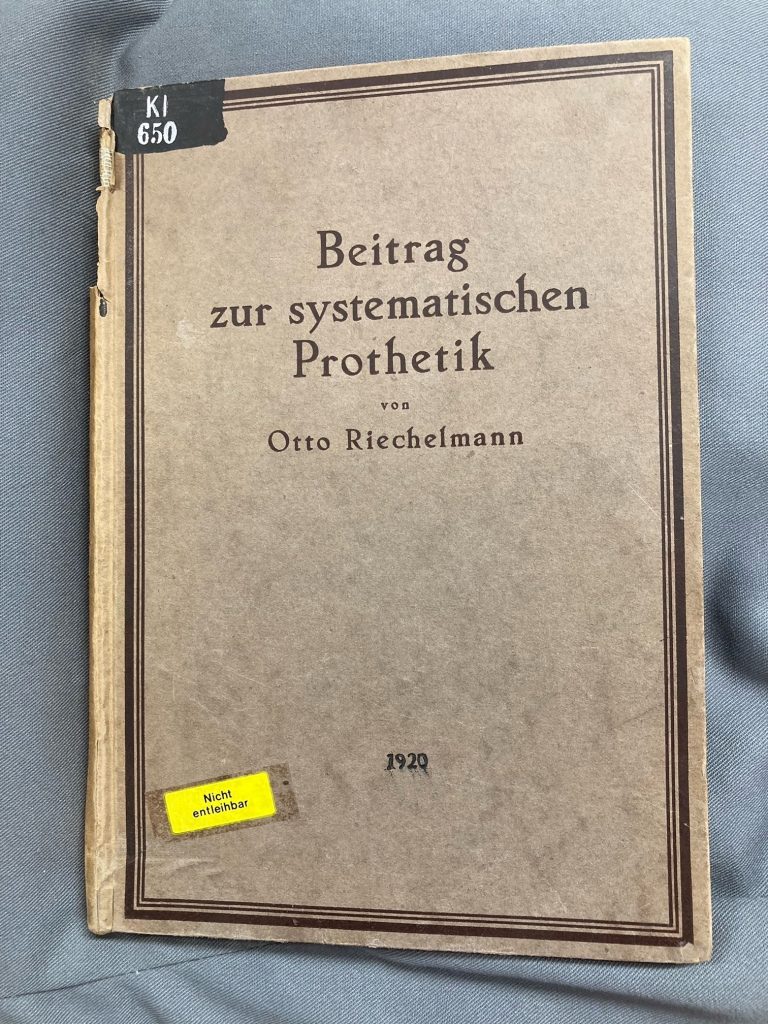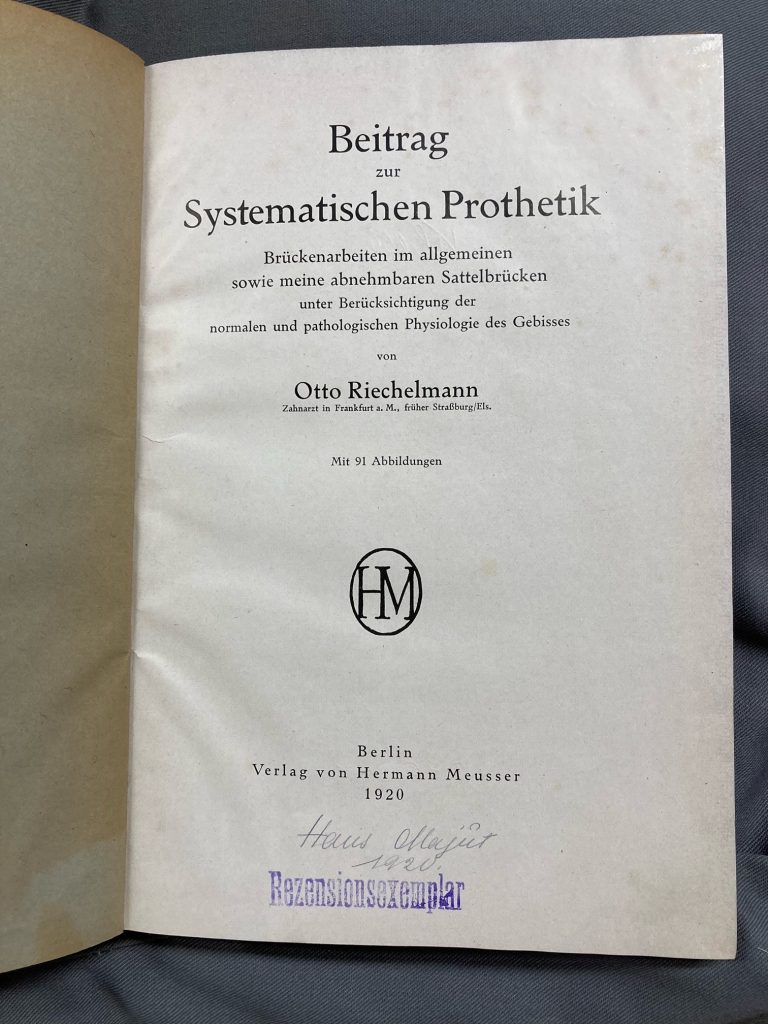Please note that this post contains content relating to suicide and the Holocaust. If you are affected by this topic, please be aware of our available support information for students and support services in the community.
e
During the summer of 2024 Special Collections received a new book to be added to the library catalogue. Nothing particularly unusual about that – except that this particular book has a complex and troubling history, and its eventual arrival in Special Collections was the result of several months’ correspondence between our team and the Zentral- und Landesbibliothek Berlin [Berlin Central and Regional Library].
e
Since 2009, the Zentral- und Landesbibliothek Berlin, or ZLB, has been working through its holdings to identify books seized by the Nazis during and prior to the Second World War. The ZLB is seeking to identify the previous owners of looted cultural property and return such books, where possible, to the rightful heirs. You can read about this work in more detail here.
e
This particular book – Beitrag zur Systematischen Prothetik – bears the signature of Hans Majut. Born into an Austrian Jewish family in 1892, Hans became a dentist, living and working in Berlin. The book relates to his professional work, as it deals with prosthetic dentistry, specifically dental bridges. However, he was also a prolific writer of poems, Märchen [fables or fairy tales] and short stories.
c

e
The book is inscribed ‘Hans Majut 1920.’ In 1933 Hitler rose to power; over the following years persecution of Jews and non-Aryans intensified year on year, until, in 1937, Hans died by suicide. His older brother Rudolf described him as, in English translation, being ‘driven to death by circumstance.’
e

e
After his brother’s death, fleeing Nazi persecution, Rudolf eventually came to England as a refugee, and settled in this country, remaining here for the rest of his long life. He managed to bring with him both his own early creative writing outputs and Hans’. Although most were never published, these drafts, manuscripts and typescripts survive in the University of Leicester Archives and Special Collections as MS 201. They were left to the University by Rudolf Majut in his will, along with his personal library of some 6,000 volumes (mostly dealing with German literature), now held on the Library’s open shelves.
e
It was through MS 201, which is not fully catalogued but findable online, that the ZLB first got in touch with Archives and Special Collections. They asked us if we had any record of, or contact for, any heirs or next of kin. Unfortunately, this is not the case. Rudolf’s widow, Käthe, died in 2005; there were no children and no other next of kin named in Rudolf’s will. If any family members in Germany survived the war, finding them, or their heirs, has also drawn a blank.
e
This being the case, the ZLB asked if we would accept the book into our collection, thus reuniting it with Hans’ own writings and his brother’s extensive library. The book arrived safely from Berlin and has been added to the Special Collections cataloguing queue; in due course it will be added to, and findable on, the library catalogue. A note will be added to the catalogue record regarding its history and provenance.
e
The ZLB feels that Archives and Special Collections is a fitting home for the book and we are happy to have helped resolve this particular instance of restitution. In some ways, however, the discovery of the book raises more questions than answers. How, why and when did this particular book end up as looted property? What happened to the rest of Hans’ books? Where are they now? Will they ever be found?
e


 Subscribe to Eleanor Bloomfield's posts
Subscribe to Eleanor Bloomfield's posts